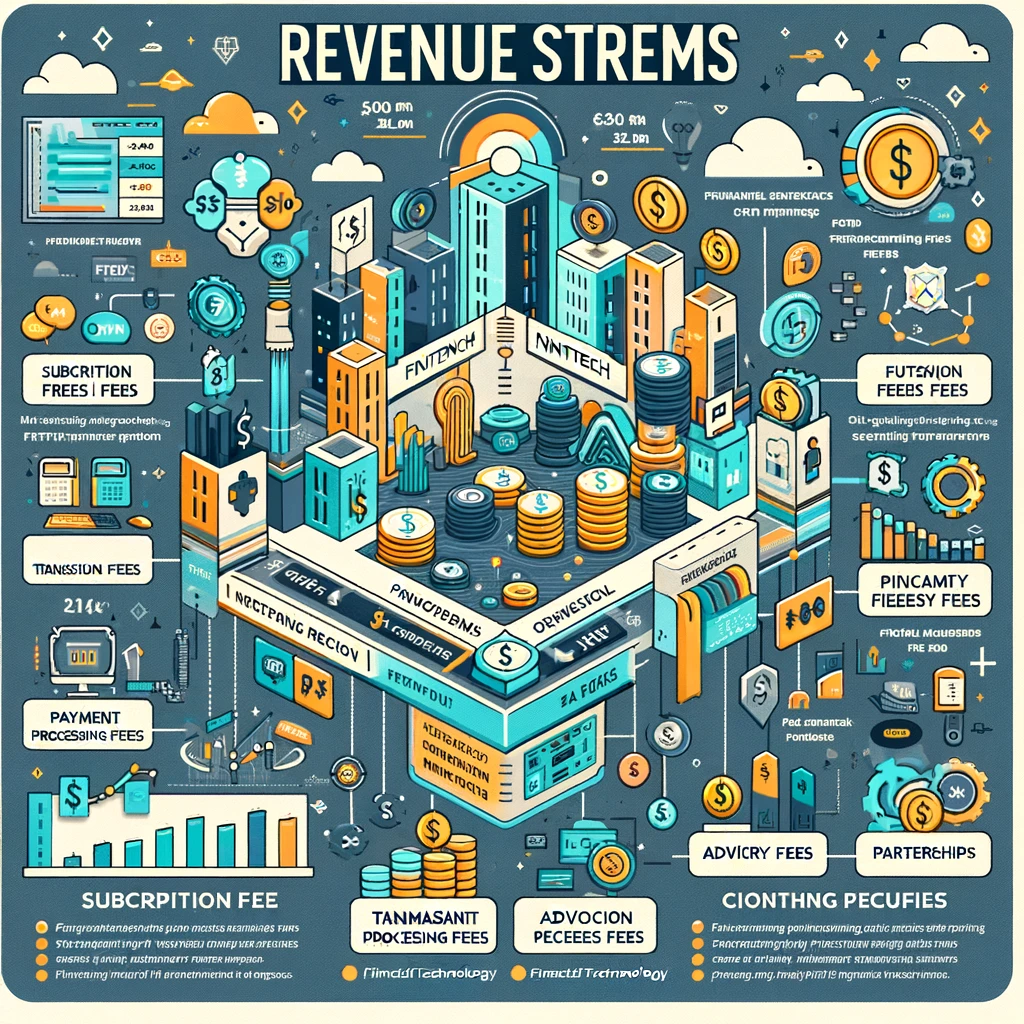Starting a fintech business involves merging innovative technology with a unique business model to offer distinct value in financial services. The fintech industry, worth billions and growing rapidly, presents numerous opportunities. To start, it’s crucial to understand both finance and technology regulations, as fintech handles sensitive financial data. Here’s a summarized guide to launch a fintech startup:

Develop an Idea: Focus on disrupting traditional financial services. Identify pain points in current systems and conceive solutions.
Validate Your Idea: Use market research, user surveys, and tools like Google Trends to assess demand and viability.
Understand Regulations: Familiarize yourself with relevant regulations like GDPR, PSD2, and others to ensure data protection and compliance.
Define Services and Niche: Narrow down to a specific fintech niche like digital banking, personal finance, investment, or crypto apps.
Know Your Audience: Conduct market research to understand your target audience’s financial needs and technology preferences.
Research Competitors: Analyze competitors to understand market trends and identify gaps in services.
Choose a Development Partner: Select a tech partner experienced in fintech and prioritize security in development.
Prioritize Security: Implement robust security measures to protect sensitive data.
Secure Funding: Explore various funding options like venture capital, crowdfunding, or traditional loans.
Develop and Improve: Start with an MVP (Minimum Viable Product) and refine your product based on user feedback.
Successful fintech companies like Stripe, Mint, and Robinhood have emphasized simplicity, customer-centric approaches, and innovative solutions. Understanding market needs, regulatory compliance, and maintaining a focus on security are key to thriving in the fintech sector.
How to Build Your Own Fintech?
To build a successful fintech app, you need to focus on specific steps and strategies. Firstly, decide the type of fintech app you want to create, such as digital banking, investment, or personal finance apps. Conduct thorough market research to understand industry trends and customer needs, and identify gaps in the market. It’s crucial to create detailed customer personas to understand the target users’ preferences and challenges.
Set a clear budget for development, considering the complexities and security requirements inherent in fintech apps. Plan the user experience meticulously, ensuring easy onboarding and intuitive navigation. Define the app’s essential features and capabilities, focusing on user needs, and choose a suitable tech stack that supports robust development, including programming languages and frameworks.
Ensure your app complies with relevant financial regulations and data protection standards. Develop a launch strategy that allows for testing, gathering feedback, and making necessary improvements. Utilize fintech APIs to streamline development and enhance features like payment processing and customer support. Finally, a successful launch and ongoing optimization based on user feedback are crucial for the app’s long-term success in the competitive fintech market.
Can You Make Money in Fintech?
In the fintech sector, revenue generation is diverse and innovative, adapting traditional financial models to digital platforms. Key income sources include interchange fees from card transactions, where fintechs like Chime earn a percentage. Subscription models, like those used by YNAB and Tiller, charge users recurrent fees for premium features. Payment processing, a significant revenue stream for companies like Square, involves fees from credit card transactions. Fintechs also profit from trading fees on platforms like Coinbase, and through API connection fees, where businesses pay for data sharing and financial integrations.

Additionally, advisory or robo-advisory fees from platforms like Wealthfront, involve a percentage charge on assets managed by AI. Third-party referral fees are another model, exemplified by Credit Karma, which earns from directing users to financial products. Some fintechs benefit from payment for order flow, where brokerages like Robinhood receive payments for directing orders to market makers. Interest from loans, as seen with Coinbase’s cryptocurrency lending, also adds to the revenue.
Moreover, different fintech categories, including crowdfunding, money transfer, lending, digital insurance, and advertising, employ unique models. Neo-banking and transaction delivery are emerging areas offering digital banking solutions and data-driven insights. The fintech industry, while still growing and not uniformly profitable, is marked by high valuations and a focus on expanding customer bases. The future of fintech, with its user-friendly and accessible services, looks promising, evolving rapidly with technologies like AI, blockchain, and mobile payments.
How Much Fintech Pays?
As of January 2024, the average annual salary for a fintech professional in the United States is approximately $123,495, equating to about $59.37 per hour. This figure represents a wide range of salaries within the sector, with the lowest earnings around $35,500 and the highest reaching up to $206,000 annually. The majority of fintech salaries fall between $88,000 and $151,000, with top earners making up to $184,500. The salary potential in fintech varies significantly, influenced by factors such as skill level, location, and experience. While the fintech job market isn’t very active in some areas, such as Ankara, TR, there are cities in the U.S. where salaries exceed the national average, like San Mateo, CA, and Boston, MA. Additionally, specialized roles within fintech, like those in the Fintech Group, can command higher salaries, sometimes 47.6% more than the average fintech salary.
How Risky is Fintech?
Fintech, while offering innovative financial solutions and rapid services, is subject to significant risks in areas such as regulation, cybersecurity, financial and business operations, and reputation. Key challenges include adapting to fast-paced market changes and navigating ambiguous regulatory landscapes, as laws often lag behind technological advancements.

Cybersecurity is a paramount concern, given fintech firms’ reliance on technology and handling of sensitive financial data, making them targets for cyberattacks. Financial risks include dependency on venture capital funding, which can be volatile. Additionally, operational risks stem from unforeseen market occurrences, non-compliance with regulatory requirements, personal and professional liability issues, data thefts, and increasing global competition. Moreover, the emerging nature of fintech poses inherent risks associated with new technologies and business models, including the potential for a “fintech bubble” similar to the dotcom bubble. These risks underscore the importance of robust risk management and regulatory compliance in the fintech sector.
Does Fintech Require Coding?
Fintech, a rapidly growing field, doesn’t always require coding skills. While programming knowledge is crucial for roles like software development, many positions in fintech, such as project coordination or analysis, don’t necessitate coding expertise. The fintech market is expanding, with a surge in the need for various job roles. The emergence of low-code platforms in fintech allows individuals without a coding background to engage in the development of new applications and fintech solutions.
Educational programs in fintech often include elements of coding, such as AWS and JavaScript, but also cater to those without prior coding experience. For instance, the School of Fintech program by Manipal Global Skills Academy prepares candidates for fintech roles like full-stack developer, BA product owner, or quality assurance expert, without requiring initial coding experience. Therefore, while coding is beneficial, it’s not a mandatory skill for all roles in the fintech sector.
Fintech Series
1- What is Fintech?
2- How does fintech make money?
3- What are disadvantages of fintech?
4- Why fintech is good?
5- What is fintech industry?
6- How to start a fintech business?
7- Why fintech zoom?
8- What is a fintech bank?
9- Is fintech good or bad?
10- How to get into fintech?










